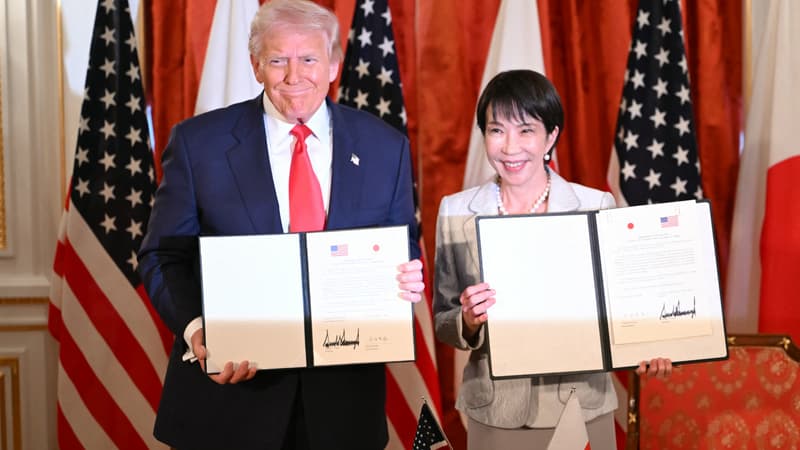The United States and Japan on Tuesday signed a framework agreement to “secure” their supplies of rare earths and critical minerals, as China adopts drastic restrictions on its exports of these essential materials.
The document, signed in Tokyo by US President Donald Trump and Japanese Prime Minister Sanae Takaichi, envisages greater cooperation and mobilization of capital to support mining and processing in both countries.
Tokyo and Washington commit in particular to “jointly identifying” projects capable of filling “gaps” in their supply chains – “including derivative products such as magnets, batteries, catalysts” – with measures adopted “within six months” to financially support priority projects.
China accounts for more than 60% of rare earth mining
“The participants will intensify their cooperation to accelerate the security of supply of critical minerals and rare earths, essential to sustain (their) industries, particularly advanced technologies,” indicates the text published by the White House. With the tools “financial support mechanisms, commercial measures, where applicable, and storage systems”.
“The participants intend to mobilize the support of governments and the private sector (…) through subsidies, guarantees, loans or their own (…) regulatory flexibilities,” the agreement adds.
This agreement comes shortly after China announced new controls on the export of technologies linked to these rare earths, much to the dismay of the United States, Japan and Europe.
However, China contributes more than 60% of the mining of metals called “rare earths” and 92% of its refined production on a global scale, according to the International Energy Agency. These materials are essential for digital technology, cars, energy and even weapons. Some rare earth elements (neodymium, dysprosium, etc.) allow the manufacture of powerful magnets, of which China represents 90% of world production.
Other agreements with Malaysia and Thailand
Concern over restrictions on access to Chinese supply is pushing Western countries to urgently seek to diversify their supply sources. “Japan is deeply concerned about the significant export restrictions on rare earths announced by China and the G7 powers should unite on this issue,” then-Japanese Finance Minister Katsunobu Kato stated in mid-October.
The United States and Australia also signed an agreement last week on critical minerals that Australia has, so Canberra presents itself as a reliable alternative. During his visit to Southeast Asia, Donald Trump also concluded two memorandums of understanding with Malaysia and Thailand on Sunday to “strengthen cooperation” on “critical minerals.”
In the trade agreement signed at the same time, Malaysia agreed to facilitate access to “critical minerals” in its soil, accelerating their exploitation in collaboration with American companies.
Source: BFM TV


